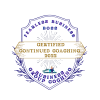Are you a health coach, wondering how to grow your audience? Do you want to find more clients, sell more courses, connect with more people and increase revenues?
Blogging is an absolute gem for building your business.
It builds your brand, stimulates conversation with your audience, gets you seen in more places online, and demonstrates your knowledge, experience and dedication to meeting your clients’ needs. It is a key element of content creation and marketing.
Blogging develops a connection and trust from your audience, which ultimately keeps your clients coming back for more.
3 Blogger Trust Building Strategies
1. Focus on Your Audience, Not You
You are great, you are amazing! Your clients will figure that out when you meet their needs and offer solutions to THEIR pain points.
This is where your market research comes in. Know your audience, then you can write valuable copy for them. Copy that will have them coming back for more, spending time on your website, and looking at your services and products before they make a decision to hire you. This is where the relationship is built.
The purpose of your blog is to connect with your audience. Know their pain points and provide solutions through clear, well-organized and engaging content.
What problems do they have that your products or services can solve?
For example, imagine trying to develop a marketing and blog strategy if all you know about your target market as a health coach is your clients are women over 50 years old who want to lose weight. While this is a start, it will only skim the surface of what you need to know about your audience.
You will want to dig much deeper and find out:
Where do they live, income levels, education, hobbies, where do they shop, are they beginners in making lifestyle changes or have they tried other coaching programs that have not worked? Do they have specific health issues, and what websites and influencers do they follow? What frustrates them about losing weight, what have other service providers been telling them? How are you different?
These are a few of the questions you would need to research. You may have subgroups within your audience that slightly differ, but having only a vague knowledge of your ideal client isn’t going to connect with them.
Where do I look to get more information about my audience?
Current clients, surveys, test groups, online research such as websites, social media, associations, conferences, podcasts and competitor research.
2. Consistent Content
When you were a kid at school, did the teachers demand proper spelling, punctuation, sentence structure, and organized ideas with an expected due date? Yes because you were learning organizational and communication skills and how your writing was coaching your readers in an efficient and engaging way. The same goes for your blogs now. It matters.
Here are 3 tips for Consistent Content
- Have a content schedule – be consistent and on time in delivering your blogs
- Edit and proofread – grammar, structure, style, the accuracy of your data
- Text, design and images – consistent with your brand
Consistency builds trust online just as much as it does in person. Is the content reliable – posted on schedule? Does it add value, improve or provide solutions to your audience’s needs and wants?
Blogging requires respectful presentation. It shows your potential clients that you care, and attend to details and the work you do for them will be impressive. Grammar matters, tone, depth, and relatability are all perceived by your audience.
3. Engaging and Well Written
Readers are smart and will be able to recognize intuitively and intellectually if you:
- Dislike writing but pretend you do (shows lack of authenticity)
- Don’t use their language
- Write content they aren’t interested in – content is more about you than them
- Have little substance in the content – reads like a run-on story, without the meat and potatoes
- Are not clear, specific and to the point
Ultimately you will lose their attention and trust.
Trust-building with your audience takes time. The written content of your business is a key factor in how your business is presented to your audience. Regular blogging, weekly or monthly, builds that connection, reliability, and demonstration of knowledge and expertise. You will be seen as having the ability to provide solutions to problems. This doesn’t happen from writing a few haphazard blogs or updating your website copy once every couple of years.
If you want to deliver quality, convertible content, and are struggling to keep and engage readers on your website, consider the points above. Are there easy fixes or do you need some help?
Weigh in on the value of the time you could spend growing your business, doing what you love versus plugging out the written content you don’t enjoy doing. Bringing on a professional writer is cost-effective and saves you time. You get to decide where that new spare time goes. Spending more time with your family, pitching new clients (increased revenue), attending networking events, and updating your skillsets.
There are options, I can help (CTA Button here)




